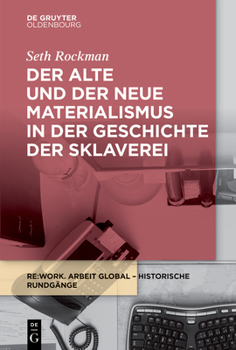Der alte und der neue Materialismus in der Geschichte der Sklaverei
Ever since W.E.B. du Bois conceptualized slaves' self-emancipation during the U.S. Civil War as a "general strike," the language of labor history has informed scholarly understandings of slavery. While the analogy of the plantation to the factory has its obvious limitations, historians have understood slaves and slaveholders as engaged in recognizable struggles over the speed of work, the ownership of time and expertise, and the informal rights and privileges that governed the labor process. However, an older materialist history rooted in marxist categories has not always succeeded in capturing the dynamics of racial dominance and human commodification at the heart of the American slave system. A "new history of capitalism" has offered one remedy, namely to embed slavery firmly within a capitalist mode of production whose investment in "free" labor was always more rhetorical than real. A different response may now be emerging through what scholars call "the new materialism"--an approach organized around human/non-human entanglements and drawing on recent theoretical work on things, networks, and assemblages. This talk considers the implications of this "new materialism" for the history of slavery, and by extension, for the field of labor history more generally.
Related Subjects
History




